Kylie Jenner’s clothing line Khy is trashed by ethical fashion advocates for being made of synthetics and plastic ‘vegan leather’ – materials that crack and don’t last
Kylie Jenner has been criticized by environmental groups for her new fashion label’s collection, which is made exclusively from plastic.
The reality star has been accused of “perpetuating the fast fashion industry” with her line of dresses, tops, skirts and pants from her brand Khy that are made from fossil fuels instead of sustainable materials.
Of the 38 products from her latest collection of “slinky and soft” mesh items, which released on February 28, are all made from synthetic fabrics – such as spandex, nylon, polyester or a combination.
Khy also offers a wide selection of faux leather products from the brand’s first collection, made from polyurethane (PU) leather – a plastic material derived from a synthetic polymer.
Kylie Jenner’s faux leather collection from her new clothing line Khy is being criticized for its use of synthetic and unsustainable materials
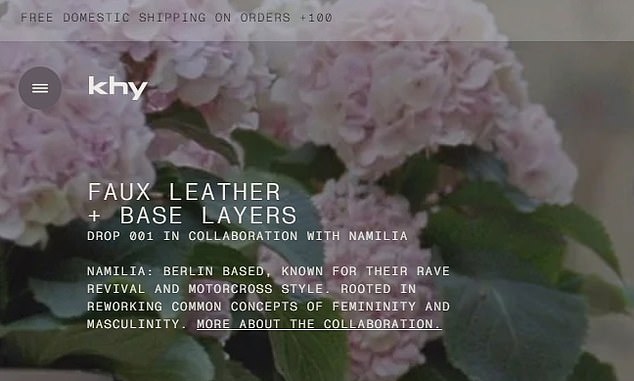
The 26-year-old dropped Khy’s first collection, ‘Faux Leather + Base Layers’, in November, consisting of products made from plastic
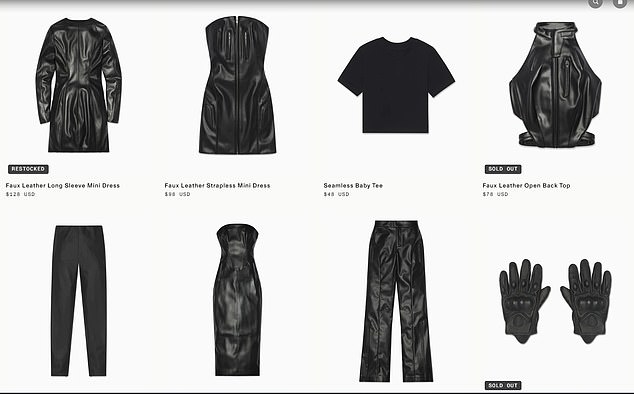
Although the line of dresses, jackets, tops and pants is relatively more affordable because it is made of PU leather, the use of the material has been condemned by proponents of ecological and ethical fashion.
The market for faux leather – or what has been rebranded as ‘vegan leather’ – was valued at an eye-watering $35.4 billion last year, and is now driving a substantial increase in the use of PU leather in clothing products as a low-cost alternative.
However, the material is not intended to last long, is prone to tearing and wears out more easily.
Kylie, 26, was named Best Vegan Fashion Moment at the PETA Fashion Awards in December for Khy’s use of cruelty-free faux leather, despite the material’s not-so-eco-friendly plastic element.
Collective Fashion Justice founder Emma Hakansson – who campaigns against the ‘injustices in fashion chains that harm the planet, people and animals’ – told DailyMail.com: ‘Kylie’s brand is in the fast fashion industry and perpetuates our overproduction and consumption crisis.
‘These garments are not designed to last, they are built around short-lived trends with no respect for the people who made them, the planet or the life on it that is harmed in the process.
“Creating fashion that harms people, animals and the planet is ugly to look at, and we deserve garments that are beautifully made, not just fun to wear,” Hakansson added.
‘Although animal-derived leather is one of the most climate-damaging, cruel and destructive materials in fashion, it is disingenuous to refer to these garments as made from ‘vegan leather’ – these clothes are not made with any commitment to animal protection or sustainability, only profit.
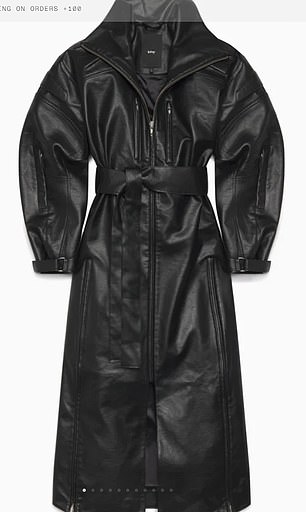
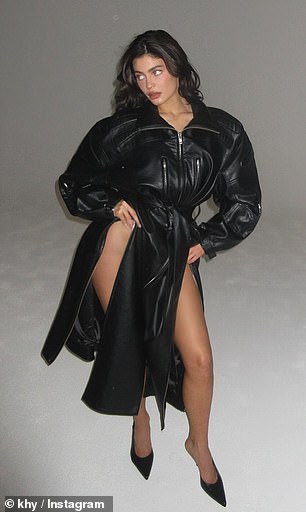
The reality star posed on Instagram last month in her best-selling faux leather trench coat to reveal the item was back in stock on the brand’s website, Khy.com
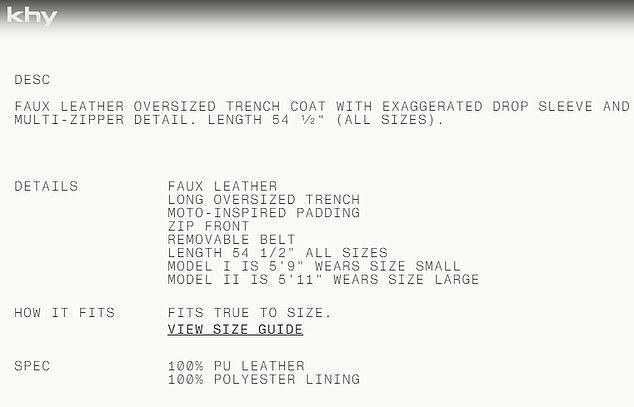
The product specifications online confirm that the trench coat is made of 100% PU leather or polyurethane
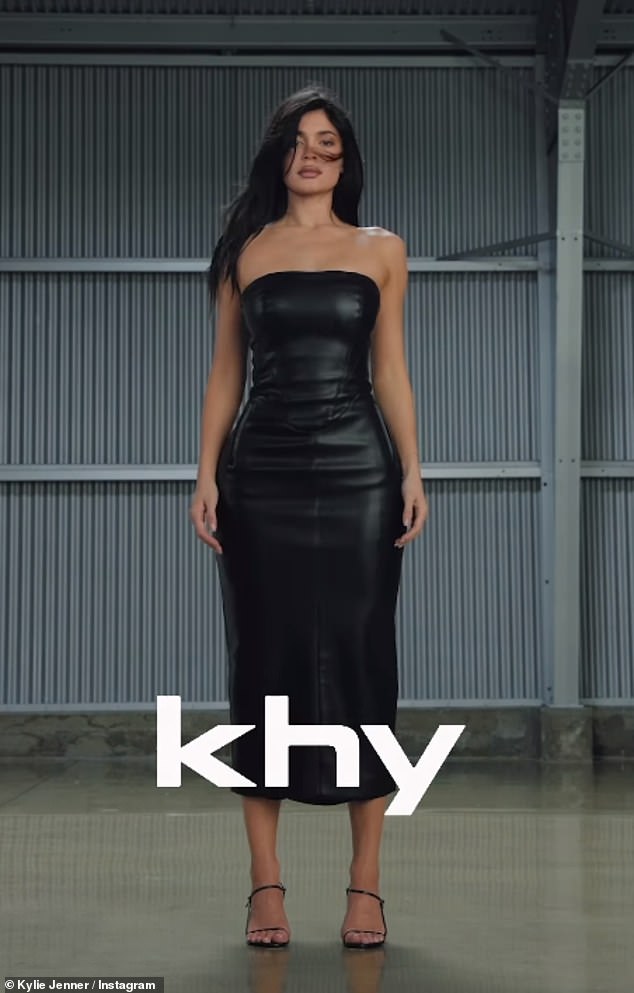
In a series of ads promoting the new line, Kylie herself was seen wearing a black bodycon strapless PU leather dress
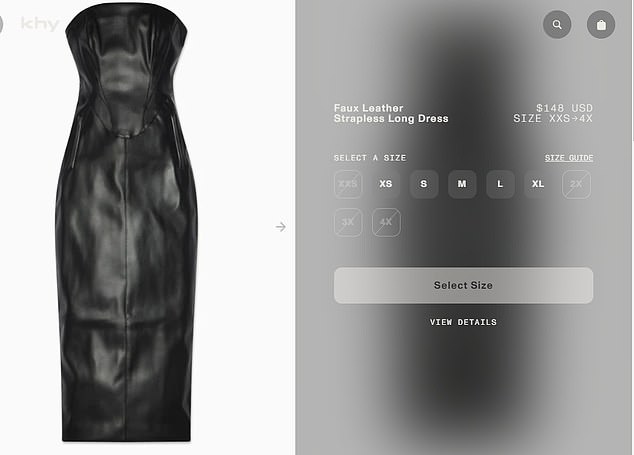
The form-fitting dress costs $148
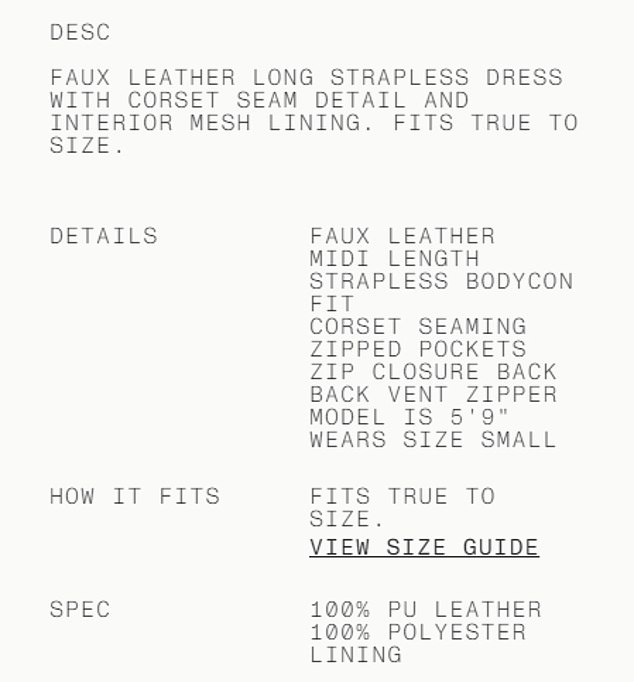
‘Almost 69% of clothing is now made from fossil fuels. We cannot curb the climate crisis if we wear plastic instead of plant-based, recycled and bio-based materials,” Hakansson says dully.
While Kylie’s Cosmetics has moved to cruelty-free and vegan products, the Khy brand, which released its first product in November last year, has no information on its website about ethical or environmental standards – which has become a norm within the designer. industry.
Instead, the website just says: ‘Khy aims to redefine the modern wardrobe by offering edited collections that seamlessly blend luxury with everyday style, spanning a wide range of categories and styles.
“By collaborating with iconic brands and global designers, we hope Khy will be a platform that provides everyone with access to incredible fashion.”
It’s a similar story for her sister Kim’s SKIMS brand, which has been given a one out of five ethical fashion rating by environmental group Good On You, saying it is a brand to ‘avoid’.
‘This brand does not provide enough relevant information about how it reduces the impact on people, planet and animals. You have the right to know how the products you buy affect the things you care about,” the group’s website says.
“SKIMS is generally rated ‘We avoid,'” it adds.
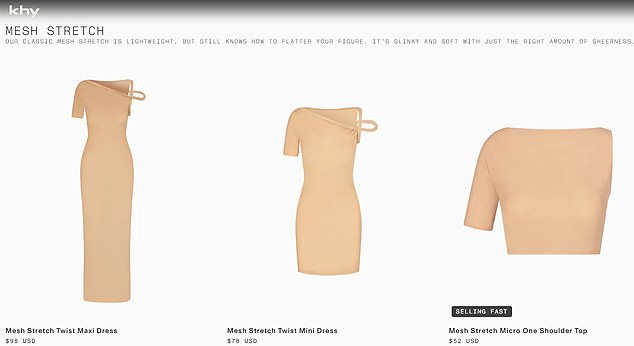
Of the 38 products in her latest collection of ‘slinky and soft’ mesh pieces (pictured), which was released on February 28, all are made from synthetic materials – such as spandex, nylon, polyester or a combination thereof.
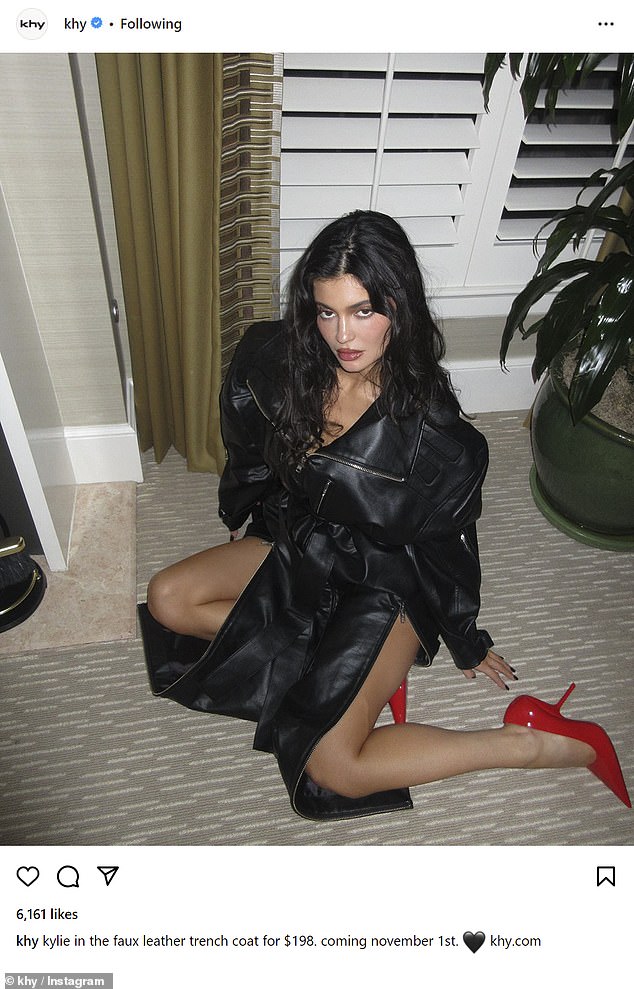
Jenner posed in the popular leather trench coat in an Instagram post last November teasing the collection’s release
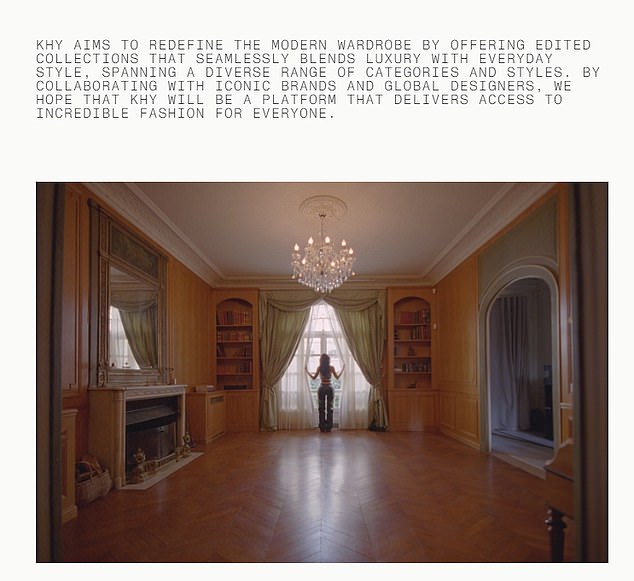
Khy has no statement on its website informing customers of the ethical or environmental supply chain standards – which have become a norm within the designer industry – just the brand’s mission to ‘redefine the modern wardrobe’
CEO Gordon Renouf told DailyMail.com: ‘When considering the sustainability of a brand, it is important to look at the full range of impacts, particularly on the environment and the workers who produce the clothing.
‘Brands have an obligation to their customers to be fully transparent, not just about the materials used and where they are made, but about their entire supply chain and how it impacts key issues including resource use, carbon emissions greenhouse gases, water use and air and chemical substances. pollution, working conditions and living wages.’
Speaking to DailyMail.com, Hakansson added: ‘The Kardashians have a track record of prioritizing profits over the lives of those who make their clothes, and the planet we share.
‘Skims received a terrible rating for the transparency of their supply chain.
‘Brands that do the right thing will normally be proud of their supply chain and tell you about it; those who have no information should not be trusted.
‘With all the money the Kardashians have, they have a duty to ensure that when they produce fashion, they do so in a way that pushes the industry to actually protect people, animals and the planet. Right now they are choosing greed.”
